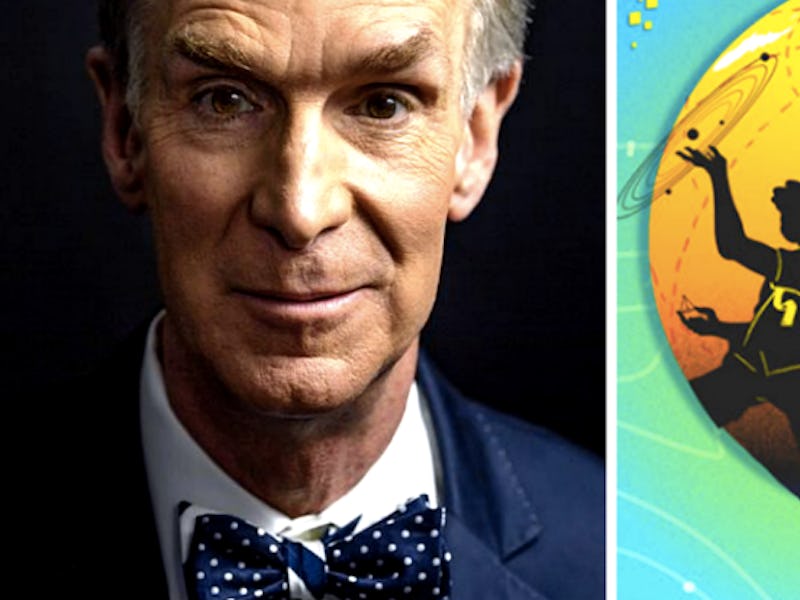Bill Nye Says An Adventure Book Inspired Him to Become a Scientist
And now he's got his own series.

Bill Nye is a busy man and a household name, famous for his television shows, punditry, and activism. These efforts are driven by a passion for science and technology — a passion, he tells Inverse, that stems from the fiction he read as child.
“I grew up with the Hardy Boys, but I also grew up with something called the Tom Swift Jr. series, which were books about this young guy who works with amazing technological things — diving seacopters, outposts in space, megascope projectors,” says Nye. “Tom Swift Jr. helped make me who I am!”
Now Nye is paying the inspiration forward with his own young adult series, co-written with science journalist and children’s novelist Greg Mone. Called Jack and the Geniuses, the series follows 12-year old Jack and his genius, robot-building, math-whiz foster siblings, Matt and Ava. In the background of each of these three books are the trio of “big picture” things that Nye says he wants for everyone in the world: clean water, renewably produced and reliable energy, and access to global information.
“We’re looking to inspire kid’s interests in science and technology in a new way, while basing those stories in reality,” Mone told Inverse at BookCon, an annual convention in New York. “Any time you can light up a kid’s imagination and get them thinking about those topics in a different way, I think you’re helping them get on the right track for fostering a passion for science and technology.”
There’s research to back this up. A 2012 study from Ohio State University found that people end up mimicking the behavior and thoughts of fictional characters in their real lives, if they become immersed in the world of that character. Researchers call this phenomenon “experience-taking”, and it’s a fair hypothetical to say something like the pro-science behaviors of the Jack and the Genius characters could influence children to act in a similar fashion. Studies have also found that fictional experiences positively influence the development of empathy in readers — they more they are emotionally transported by the book, they more they can empathize with the feelings portrayed by the fictional characters.
That’s good news for Nye, who hopes these books will help influence a new generation of scientists and science advocates. At the base level, what these books give kids is an adventure novel — what they get beyond that is a lesson in how to think analytically about big scientific ideas.
“These books are based off my own experience of being around 10 or 12 when I really became aware of the world,” says Nye. “You learn to think critically by then. It’s just your vocabulary and your life experiences that are much more limited than grownups. But you can think.”
The first installment of Jack and the Geniuses was released in April. The second book, published by ABRAMS, is coming out in September.